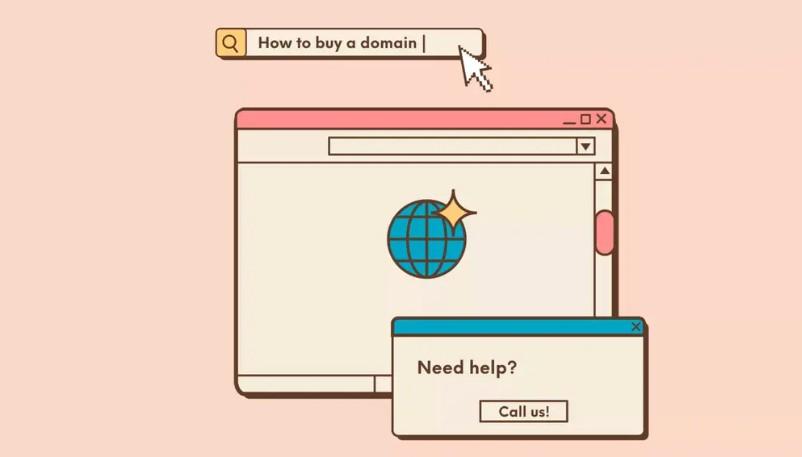So, you’ve got a promising small venture. Maybe it’s a service. Perhaps it’s founded on a digital innovation. It could even be based around a brand-new product, tapping into an unserved market.
No matter how brilliant or game-changing your idea, you’ll need some help to grow.
This used to be a long, arduous process fraught with risk, sometimes spanning into years of hard work and uncertainty.
Those days for the savvy and forward-thinking entrepreneur are behind us — thanks to the promise and potential of startup accelerators.
Related: Deep dive into the Blue Ocean Strategy
Pushing the ignition button with startup accelerators
You may have read about success stories in Canada and wondered how they skyrocketed from speck on the map to the next big thing. For more than a few of them, the secret was a startup accelerator.
1. What is a startup accelerator?
First up: what exactly is a startup accelerator, anyway?
While you might not have heard the term before, you’ve almost certainly heard of businesses that benefitted from them – we’ll get into more on that later.
What’s worth knowing for now is that startup accelerators (also sometimes known as seed accelerators) are fast-paced programs that aim to give entrepreneurs the boost they need to get their businesses to the next level in a hurry.
Beyond that basic mandate, startup accelerator programs also share a few other characteristics in common. To begin with, they are a fixed-term affair – often exceedingly-so.
Most startup accelerators kick off and wrap up over just a few months, emphasizing the “accelerator” portion of the namesake!
In addition, startup accelerator programs also typically revolve around a cohort-style arrangement. The amount of work to push through during the run of the program is simply too much for even the most gung-ho entrepreneur to tackle solo.
This cohort approach is complemented by a mentor-centric atmosphere with plenty of learning opportunities.

The program culminates in a public demo day to get the newly-accelerated business, product, or service in front of investors where it truly has the chance to take off.
Related: How to find the right angel investor
2. How do I get into a startup accelerator?
Gaining entry into a startup accelerator program is both a simple proposition and a complex one, all at once.
It is simple in that accelerator programs are typically open to anyone who cares to apply.
Yet complex because the best, most well-known startup accelerators often come part and parcel with a highly competitive application process. Only a handful of candidates out of the many who apply are chosen to carry on into the program.
Looking to gain an edge in getting accepted?
Treat your application as you would when applying for any professional opportunity.
- Ensure your product or idea is sound
- Go the extra mile in polishing up your portfolio, website or any submission accompanying your application
- Present yourself as not only professional but amicable, knowledgeable, and ambitious, too
Finally, if you don’t succeed at first, don’t be afraid to try again. As we’d touched on earlier, competition can be fierce for the most coveted startup accelerator spots – so don’t be scared to give it a few attempts. Best of luck!
Related: Product design for those who actually want to sell things
3. What are the most well-known startup accelerators?
There are several well-known startup accelerators in Canada and North America.
The most famous example that entrepreneurs typically point toward is Y Combinator.
Maybe you’ve heard that name before, perhaps you haven’t — but chances are you’ve heard of Y Combinator’s success stories:
- Dropbox
- Instacart
- DoorDash
- Coinbase
- Airbnb
These are just a few big-name businesses that entered the Y Combinator process as little more than dreams and emerged not just as titans within their sectors, but as cultural behemoths in their own right.
Now, should you enter the startup accelerator experience looking to emerge as the next Airbnb? Of course not. But! The potential is there for your business to take advantage of the benefits that startup accelerators offer when accelerating your idea.
4. What are the benefits of being in a startup accelerator?
While startup accelerators aren’t a guarantee of success upon exit, there are undeniable advantages that come along with participating in these sorts of unique programs.
The first benefit, of course, comes from the learnings to be had through participation.
There is an enormous opportunity for program participants to get in there and soak up all the experience and knowledge to be learned from mentors, peers, and colleagues in the space.

The connections to be made in these programs can prove invaluable, too. In a room full of fledgling business owners, each entrepreneur will be looking to get a leg-up in their sector anywhere they can — typically, that often involves knowing the right people.
Chances are, everyone in your startup accelerator program will be just as eager to forge connections and partnerships as you are, so don’t hesitate to jump in there and give yourself a leading advantage!
Finally, the prestige of simply being selected to participate in a startup accelerator program is often seen as an advantage in and of itself — mainly if the program happens to be run by one of the leading names in the industry.
We mentioned earlier how difficult it could be to make the cut when it comes to some of the more widely known startup accelerator companies out there.
Imagine what a feather in the cap it would be for a young company to be chosen by the same startup accelerator business that helped get DoorDash up off the ground and running! The appeal is clear, that’s for sure.
5. What are some inspiring example businesses that have gone through a startup accelerator?
We’ve already touched on several household names that have gone through the startup accelerator process above. But these are hardly the only successful companies to capitalize on the benefits that accelerators offer.
From OpenSea to Substack, Grubhub to Venmo, there’s no shortage of companies that got their start through startup accelerators.
And those are just the very biggest brand names on the list! Innumerable startup accelerators are launching countless numbers of successful businesses and ventures each and every year.
You don’t need to be the next Instacart to call your experience a success – you only need to get your idea out there into the world and see it take flight.
Some final words to remember on startup accelerators
Startup accelerators can be a bit of a tough nut to crack, but once you get accepted into a program, the sky’s the limit for how far you can take your idea.
Suppose you’re looking for guidance when approaching your startup accelerator ambitions and making it through the gauntlet of acceptance? In that case, I leave you with some words to remember in the form of five key takeaways on the subject:
Be brave
Take leaps of faith. Try new things. Ingenuity always pays off — even if that payoff comes in learning from an innovation pursued that didn’t quite pan out!
For example, Airbnb was an extremely outside-the-box concept initially, but its founders boldly took a chance on something they believed in, and it paid off. You can do the same.
Be resilient

Some days will be harder than others. Celebrate the wins and recognize the losses and struggles for what they truly are: not roadblocks but opportunities to grow and continue innovating.
Hanging your head for too long can cause you to miss valuable opportunities right in front of you.
Be appreciative
Show appreciation and reciprocity to your network and those who help you along the way.
It is simple acts like a thank you phone call to a mentee or a surprise coffee card to someone who helped you along the way.
We are defined, after all, not by our victories alone but by how we treat those who help us along the path toward success.
Be flexible
This is a fine line to walk – you don’t want to abandon excellent ideas when they don’t work out, but you also don’t want to bang your head against a brick wall.
Know when to move on from an idea and when to pivot so you can remain agile to new opportunities. If you are unsure about when to call it quits, reach out to people you trust in your network for guidance.
Be confident
You need to believe in your idea if you expect others to buy into it. So be confident in your choices and listen to your intuition, heart and gut.
Sometimes confidence is not easy, but there is truth to “fake it until you make it.”
Pushing outside our comfort zone is the only way we grow.
Best of luck with that fledgling venture – if you’ve got a startup accelerator on your side, chances are you’ll be off to a great start in no time!






